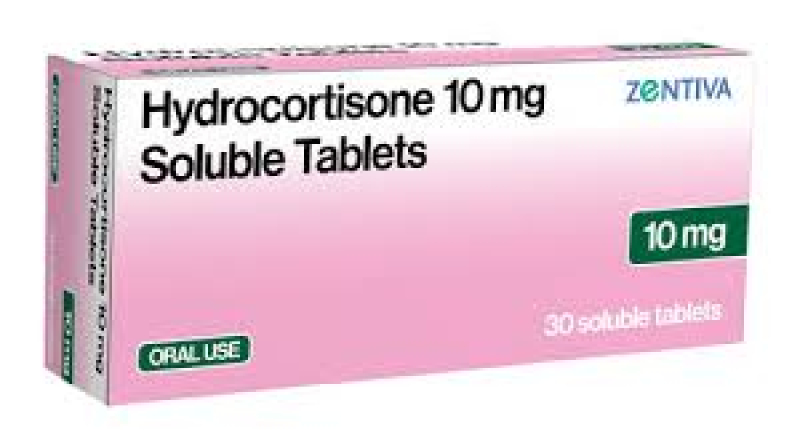How to Order ? Simple.
-

1.
Select Treatment
Choose from our treatment options or speak to the in-store pharmacist for advice
-

2.
Complete Medical Questionnaire
Complete our free online medical consultation to be reviewed by our Clinical Team
-

3.
Collect Medication from Local Pharmacy
We will notify you when your medication is ready for collection
Advice for Mouth Ulcers
Mouth ulcers, also known as **aphthous ulcers** or **canker sores**, are small, painful sores that develop on the inside lining of the mouth, on the tongue, gums, or the inner cheeks. They typically appear as round or oval lesions with a white or yellowish center and a red border.
These ulcers are common and can affect people of all ages. They usually cause discomfort, especially when eating, drinking, or speaking, but they are generally harmless and tend to heal on their own within one to two weeks.
The exact cause of mouth ulcers is not always clear, but several factors can trigger or worsen them. These include minor trauma to the mouth, such as biting the cheek, aggressive tooth brushing, or irritation from dental appliances. Stress, hormonal changes, certain foods (like citrus fruits, chocolate, or spicy foods), and nutritional deficiencies—particularly of vitamin B12, iron, and folic acid—can also contribute.
In some cases, mouth ulcers may be associated with underlying medical conditions, such as viral infections (like herpes simplex), autoimmune diseases (such as Behçet’s disease or lupus), or gastrointestinal disorders like celiac disease and Crohn’s disease.
Most mouth ulcers are classified as **minor aphthous ulcers** and heal without treatment. However, larger or more painful ulcers, known as **major aphthous ulcers**, or those that recur frequently, may require medical evaluation.
Treatment focuses on relieving pain and promoting healing. Over-the-counter topical treatments such as protective pastes, antiseptic gels, or corticosteroid ointments can reduce discomfort and inflammation. Avoiding spicy or acidic foods, maintaining good oral hygiene, and using mild mouth rinses can also help.
If ulcers are persistent, unusually large, or accompanied by other symptoms like fever, weight loss, or difficulty swallowing, medical advice should be sought to rule out more serious conditions, including oral cancers.
Mouth ulcers usually begin as small, painful sores inside the mouth. They often start as a round or oval area with a red, inflamed border surrounding a white, yellow, or grayish center. The size of the ulcer can vary, typically ranging from a few millimeters to over one centimeter in diameter.
The main symptom is a **sharp or burning pain**, which can be mild to severe, especially when eating, drinking, or speaking. This pain often worsens with contact from acidic, spicy, salty, or rough-textured foods. The discomfort may cause difficulty eating or talking.
Before the ulcer appears, some people experience a **tingling, burning, or itching sensation** in the affected area. This prodromal feeling can occur a day or two before the sore develops.
In addition to localized pain, the affected area may be swollen or tender. Larger ulcers, or those located on sensitive areas such as the tongue or the inside of the lips, tend to cause more discomfort.
Mouth ulcers usually heal within one to two weeks without scarring, but more severe or recurrent ulcers can last longer and cause prolonged pain.
In some cases, especially when ulcers are associated with systemic illness, there may be additional symptoms such as fever, swollen lymph nodes, fatigue, or general malaise.
Mouth ulcers can develop for a variety of reasons, and often no single cause is identified. One of the most common triggers is **minor injury or trauma** inside the mouth, such as accidentally biting the cheek, irritation from sharp or broken teeth, aggressive tooth brushing, or contact with dental appliances like braces or dentures.
Certain **foods** can also provoke mouth ulcers in sensitive individuals. These include acidic fruits like oranges and pineapples, spicy foods, nuts, and chocolate.
**Stress** and **emotional upset** are known to contribute to the development of mouth ulcers in some people, possibly due to their effect on the immune system.
Nutritional deficiencies, especially of **vitamin B12, iron, folic acid, and zinc**, are associated with an increased risk of developing mouth ulcers. Poor diet or absorption problems can lead to these deficiencies.
Infections caused by viruses such as the **herpes simplex virus** can cause ulcers that are typically more painful and contagious.
Certain **medications** like nonsteroidal anti-inflammatory drugs (NSAIDs), beta-blockers, or chemotherapy drugs can cause mouth ulcers as a side effect.
Underlying medical conditions, such as **autoimmune diseases** (for example, Behçet’s disease or lupus), **gastrointestinal disorders** like Crohn’s disease or celiac disease, and **blood disorders** can also present with recurrent or severe mouth ulcers.
Hormonal changes, particularly during **menstruation or pregnancy**, may increase the likelihood of mouth ulcers in some women.
Finally, genetic factors may play a role, as mouth ulcers tend to occur more frequently in some families.
Betamethasone is a potent corticosteroid medication used to reduce inflammation and relieve pain associated with severe or persistent mouth ulcers. It works by suppressing the immune response that causes inflammation and swelling in the ulcerated area.
Betamethasone is typically applied **topically** in the form of an ointment, gel, or mouthwash. It should be used carefully and usually only when milder treatments, such as over-the-counter protective pastes or antiseptic rinses, have not been effective.
When using betamethasone ointment, it is important to apply a small amount directly to the ulcer several times a day, often after meals and before bedtime, following the instructions provided by a healthcare professional. This helps reduce pain, promote faster healing, and decrease the size of the ulcer.
Because betamethasone is a strong steroid, treatment duration is generally limited to avoid side effects such as thinning of the oral mucosa or secondary infections. Prolonged use or overuse may increase the risk of oral fungal infections like thrush.
Patients should avoid eating or drinking for at least 30 minutes after application to allow the medication to be fully absorbed and effective.
Betamethasone treatment is usually recommended only under medical supervision, especially for large, multiple, or recurrent ulcers, or when ulcers are part of an underlying autoimmune condition.



